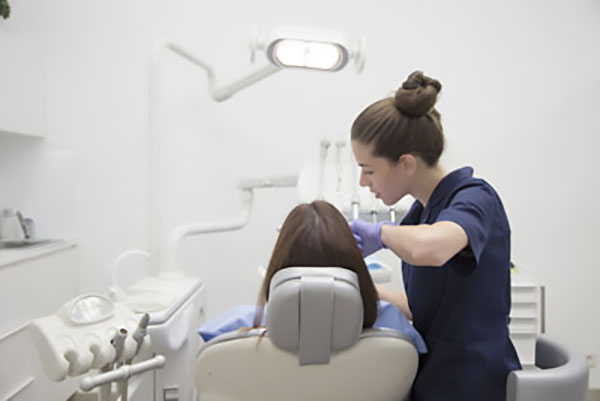Getting a Dental Crown After a Root Canal

Most patients require a dental crown after a root canal to ensure the appearance, function and health of the tooth are protected. It is helpful to understand why a dental crown may be necessary and how the treatment process works for both root canal therapy and dental crown placement.
When a dental crown is needed after root canal treatment
A dental crown may be needed if the affected tooth is weakened or has cosmetic or functional concerns. The following is a complete overview of what to expect when getting a dental crown placement after root canal therapy, including insights into how you can care for your dental crown long term.
What is a root canal?
A root canal is performed to remove the infected pulp inside a tooth. Tooth pulp may become infected or damaged due to deep tooth decay, a chipped or cracked tooth, or a variety of other reasons. The procedure is often necessary to preserve the health of the tooth and ensure any infection does not spread. It is a safe and effective procedure, although many dentists may only recommend a root canal if less invasive treatments, such as a dental filling, are not an option.
When is a dental crown needed?
Not every root canal requires dental crown placement, and whether or not one is needed depends on the location of the tooth and how vulnerable the tooth is to future damage. A dental crown following a root canal serves many different purposes, which include:
- Long-term tooth protection
- Protection from sensitivity
- Restore the natural appearance
- Prevent decay and infections
The best way to determine if a dental crown is needed after your root canal is to discuss the treatment plan with your dentist.
How does the treatment process work?
Every patient has a different experience with root canal therapy, but the most common steps include removing the infected tooth pulp, cleaning the cavity, filling the cavity with a replacement material and then sealing the tooth up. If a crown is needed following the root canal, then the dentist may also take a dental impression of the tooth and place a temporary crown while the permanent one is crafted in the laboratory.
How can I care for the dental crown long-term?
You can care for your dental crown the same as you do natural teeth, which is by practicing good oral hygiene, limiting your consumption of foods that are high in sugar and other carbohydrates and visiting the dentist regularly. Be sure to brush two times a day and floss and use mouthwash as directed by your dentist to prevent further concerns with the affected tooth as well as surrounding teeth.
Do you currently need a root canal?
Give us a call today if you want to find out more information about root canal therapy and what signs indicate you may need a root canal. We are here to help our patients through each step of the treatment process, and our friendly staff can answer any questions you have along the way.
Request an appointment here: https://www.carolinasmilesdentist.com or call Carolina Smiles Family Dental at (828) 884-3702 for an appointment in our Brevard office.
Check out what others are saying about our services on Yelp: Read our Yelp reviews.
Recent Posts
A smile makeover aims to improve the overall look of your smile. Therefore, it may involve one or a series of treatments to address multiple aspects of your smile's appearance. If there are a number of things you would like to change about how your smile looks, consider a smile makeover. Here is a closer…
A smile makeover can completely revitalize your teeth to boost your confidence and make your smile stand out. While this type of makeover differs for every patient because it is personalized to suit their respective needs and goals, the after-care tips are the same for everyone. If you want to maintain your smile after a…
A preventive dentist is a trusted partner in maintaining your oral health and preventing serious dental issues before they occur. This dental professional emphasizes regular care and education, supporting long-term wellness and reducing the need for extensive procedures. As the cornerstone of modern dental care, preventive dentistry underscores early detection, regular visits, and informed patients.A…
A smile makeover can address a wide range of potential visual defects and blemishes in the smile, from stains and chips to gaps between the teeth. However, bite correction is not something that most people know is part of a smile makeover. The good news is that revitalizing your smile does not have to exclude…


